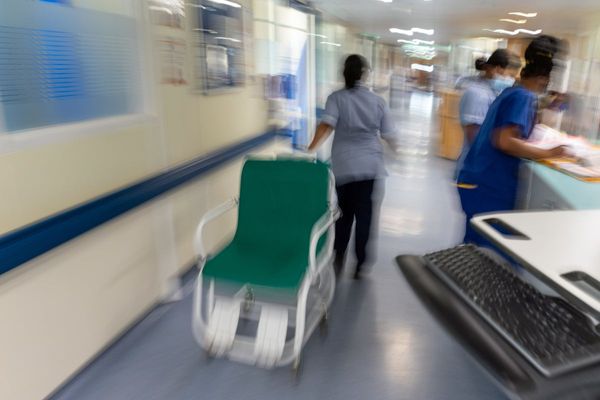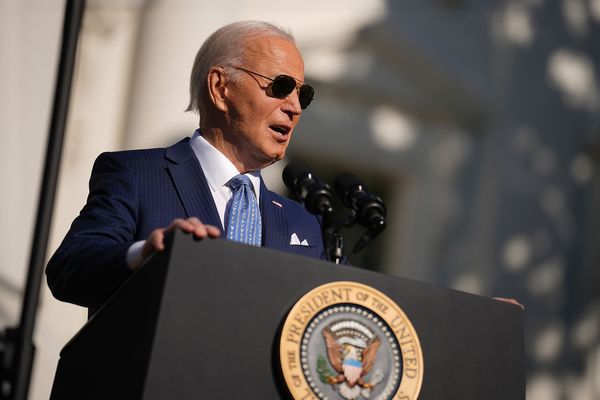
MUS (Turkey) (AFP) - Security forces fired tear gas and rubber bullets in eastern Turkey on Thursday outside the funeral of a Kurdish singer killed in Paris last month, an AFP correspondent said, as fellow victims were laid to rest elsewhere.
Mir Perwer, a political refugee, was buried in the presence of family members in Mus province.
Police blocked roads leading to the village where the funeral was held, preventing several groups from reaching the funeral, including members of the pro-Kurdish HDP party and people who said they were relatives.
Videos posted on social media and Kurdish-language media showed police blocking one group.
Security forces fired tear gas and rubber bullets to disperse the groups, according to an AFP correspondent and videos filmed at the scene.
Officers used a water cannon, while men threw stones after not being able to attend the funeral.
The funeral of fellow attack victim Abdurrahman Kizil was also held Thursday in a village in the northeastern Turkish province of Kars, local media reported.
Part of the convoy carrying his body was blocked near the funeral site, according to media close to the Kurdish movement Yeni Yasam and a lawmaker from the pro-Kurdish DBP party, Saliha Aydeniz.
Politically charged funeral
Mourners also gathered earlier in Iraqi Kurdistan for the politically charged funeral of Emine Kara, also shot dead in the December 23 attack outside a cultural centre and hairdressing salon in Paris.
Members of the Kurdistan Workers' Party (PKK), which has waged a decades-long insurgency against Turkey but which Ankara and its Western allies consider a terrorist group, joined the procession in Sulaimaniyah, an AFP correspondent said.
Kara was a veteran of the fight against the Islamic State (IS) group according to relatives, and a leader of the Movement of Kurdish Women in France linked to the PKK.
A French man, William Malet, has been charged over the attack in the French capital's 10th district, home to a large Kurdish population, which also wounded three others and fomented fear in the community.
Kara's coffin was flown into Sulaimaniyah, the second-largest city of Iraq's autonomous Kurdistan region, two days after a procession in Paris.
According to an AFP correspondent, it was brought to the Iraqi Kurdish city's Hajj Sur mosque and draped in a PKK flag.
The crowd chanted slogans glorifying "the martyr Evin Goyi" -- Kara's nom de guerre -- and some people waved flags bearing the portrait of imprisoned PKK leader Abdullah Ocalan.
Kara's relatives said she was to be buried in the Qandil mountains, north of Sulaimaniyah near the Iranian border, where the PKK has rear bases often targeted by Turkish raids.
War veteran
She travelled to France in 2020 for medical treatment after fighting IS in northern Syria, her brother, Ismail al-Hajj, told AFP at the funeral.
Kara had lived in France since then despite a rejected asylum claim.
She "fought against Daesh in northern Syria for five years and was wounded in the back during our battles in Kobane", Hajj said, using another term for IS.
Malet, 69, has told investigators he had a "pathological" hatred for foreigners and wanted to "murder migrants", French prosecutors say.
But Kara's brother, much like other Kurds in Paris and in Iraqi Kurdistan, said he suspected other motives for the attack.
For Hajj, it was an act of "terrorism perpetrated by the Turkish intelligence services with the help of their French counterparts" due to his sister's political activity.
French investigators have not given any indication of Ankara's involvement.
Turkey last month slammed France over violent protests by Kurdish demonstrators in Paris, while the French ambassador to Ankara was summoned over "black propaganda launched by PKK circles", according to a Turkish diplomatic source.
An estimated 25 to 35 million Kurds, often described as the world's largest people without a state, are spread across Turkey, Syria, Iraq and Iran.
str-lk-gde-rba-bg/imm/js







